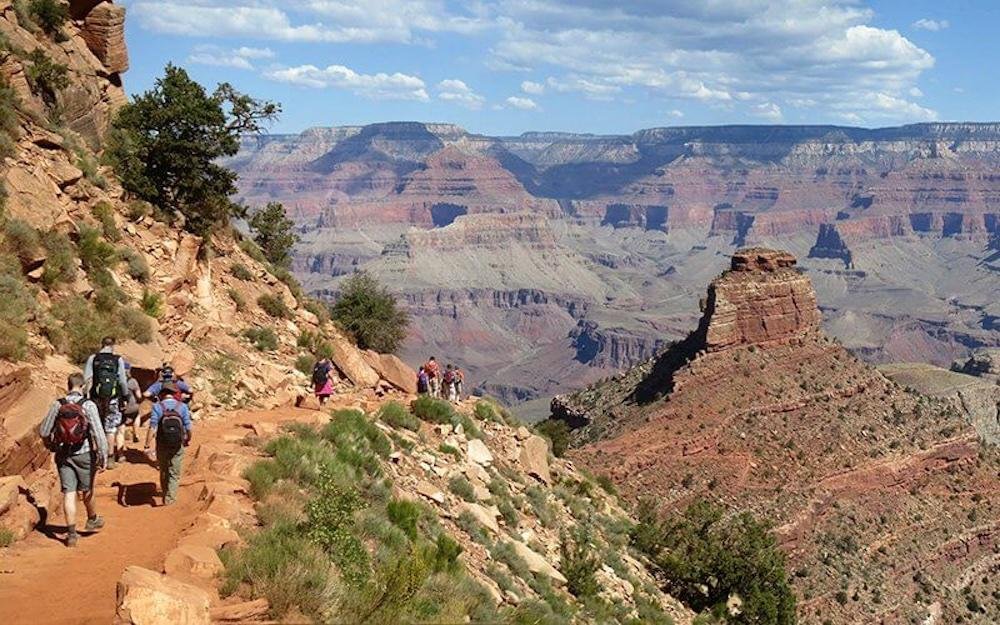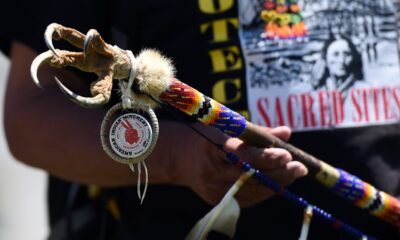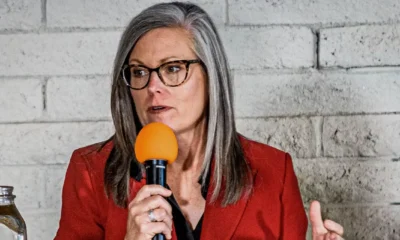Business
Arizona GOP’s Attempt to Undermine Grand Canyon Protections Fails Spectacularly

A federal judge has dismissed a lawsuit initiated by Arizona GOP lawmakers seeking to overturn former President Joe Biden’s designation of a national monument near the Grand Canyon. The case challenged the creation of the Baaj Nwaavjo I’tah Kukveni – Ancestral Footprints of the Grand Canyon National Monument, alleging that Biden exceeded his authority and that the designation negatively impacted state interests, particularly concerning uranium mining.
Judge Stephen McNamee ruled that the plaintiffs, including Senate President Warren Petersen and former House Speaker Ben Toma, lacked the standing to bring the case. Their concerns regarding legislative authority, water rights, and economic repercussions were deemed insufficient for jurisdiction. “As no Plaintiff has standing, the Court lacks subject matter jurisdiction over this matter and dismisses the parties’ complaints,” McNamee stated.
The lawsuit was filed in coalition with State Treasurer Kimberly Yee, several local governments, and a northern Arizona rancher, who claimed the monument affected his land use. Following the ruling, Petersen indicated plans to appeal, asserting that if the courts do not intercede, former President Trump would.
“We are confident this unconstitutional land grab will be reversed, either by the courts or by the Trump Administration,” Petersen expressed in a statement. The former president previously reduced two national monuments during his term, and concerns linger about potential actions on the Grand Canyon site.
Supporters of the monument fear future reversals, heightened by Trump’s recent appointments and directives against national monuments. Aaron Paul, an attorney for the Grand Canyon Trust, emphasized the anticipation of political challenges and expressed hope for positive management conversations regarding the monument.
A recent poll revealed overwhelming support for the monument among Arizona voters, with 80% backing Baaj Nwaavjo I’tah Kukveni and 88% endorsing the Antiquities Act. Taylor McKinnon, of the Center for Biological Diversity, hailed the court’s decision, reinforcing community support for the monument’s preservation.
Tribal nations celebrated the ruling as well. Havasupai Tribe Chairwoman Bernadine Jones noted that the monument’s designation stemmed from her tribe’s persistent advocacy. The monument safeguards significant cultural landscapes for multiple tribes, including the Havasupai, Hopi, and Navajo nations.
Matthew Campbell, Deputy Director of the Native American Rights Fund, remarked on the long-fought protections now upheld, although acknowledging the challenges Indigenous peoples face. He affirmed the monument’s role in preserving historical sites, vital water sources, and ancestral homelands.
As the legal disputes conclude, the monument stands as a testament to the resilience and continuity of the Indigenous communities in the Grand Canyon region, with leaders vowing to maintain their commitment to these lands. Craig Andrews, Vice Chairman of the Hopi Tribe, expressed the significance of the land, noting its deep connection to their identity and future.
In light of the ruling, Paul underscored that the monument’s establishment should not be characterized as a land grab, affirming the federal ownership status of the area prior to its designation. He asserted that the lawsuit’s dismissal validates the protective measures surrounding the Grand Canyon region and its cultural heritage.


















